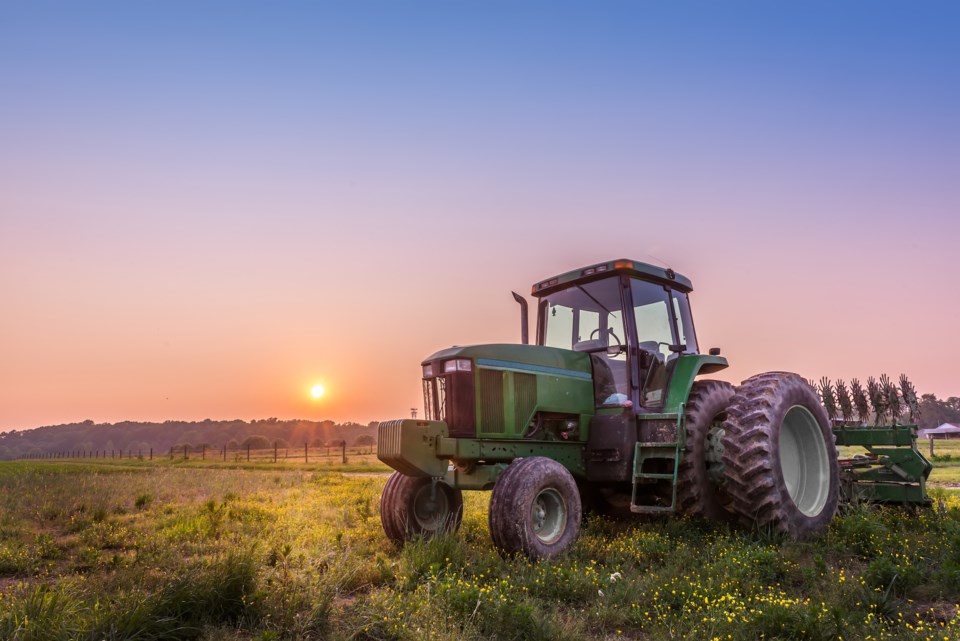WELLINGTON COUNTY – Snow might still be on the ground, but local farmers have their eye on the upcoming crop season. Before anything has even come out of the ground, farmers are already seeing something growing — their costs.
Fertilizer is the hot topic around agriculture this year, farmers tell EloraFergusToday, with the cost of it doubling, and in some cases tripling for farmers.
Janet Harrop, a dairy farmer and president of the Wellington Federation of Agriculture, said she has been quoted $1,000 per ton of nitrogen this year while last year was $350.
“We just have to absorb that into our cost of production, which means that our margins sometimes are below, as our cost of production is higher than the income we are getting from the farm-gate price of our products,” Harrop said.
“It does really create an uncertain time on farms.”
Jess Pfisterer, of Pfisterer Farms in Damascus, is feeling similar as she’s looking at a 100 per cent increase in fertilizer price over last year.
“It’s enough to make anybody cry this year,” Pfisterer said.
She explained there is a bit of a cascading effect here, for example chicken feed costing more because the price of grain has gone up, grain that is grown with more expensive fertilizer.
“It’s going to have a resounding effect on the entire ag industry this year,” Pfisterer said.
Greg Hannam, owner of Woodrill Ltd. a company that blends and sells fertilizer based just outside of Guelph, has seen his own costs rising since this past summer, which in turn raises the cost to the farmer.
He said there’s no one reason for this but it started with supply chain issues and higher energy costs impacting fertilizer manufacturing.
Foreign affairs also impact fertilizer prices as it is an internationally traded commodity. Hannam said even the war in Ukraine has added instability to the price.
“Between Russia and Belarus, they account for 30 per cent of all of the world’s potash exports, so when that market is locked in turmoil it has a big effect on the commodity of fertilizer,” Hannam said.
The precise impact on each farm and their consumer depending on what the nature of their business.
For example, Harrop said the farm-gate dairy prices are regulated and therefore can’t dictate consumer price.
Meanwhile at Pfisterer Farms, which sells some direct-to-consumer, it is possible there will be some price increases.
Pfisterer stressed it is important for people to support local farms but acknowledged the rising cost shouldn’t be burdened strictly on the consumer.
“Farmers have an onus to reduce their input costs for their customers and the health of their business,” Pfisterer said in a follow-up email. “Sustainable farming is not just about the good you do for the environment but ensuring your business is able to continue making those positive impacts for the long term.”
She explained a few things being done at her farm to lower costs include working with a poultry nutritionist to run trials on different feeds, alternative fertilizer options, early-bird pricing and grants.
Hannam agreed farmers do have some options for their costs around fertilizers but has generally seen clients buying similar amounts as they have in the past.
“I think as farmers and the ag industry we have to monitor and figure out what to do in the long term,” Hannam said. “Some of these thing that are happening, like the war in Ukraine, will have a longer lasting impact on our agricultural business.”



